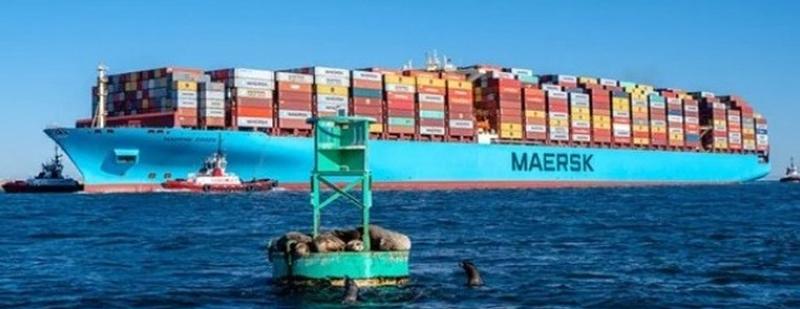 The impact of Russian sanctions is spreading across the shipping industry. Yesterday, Britain announced that Russian ships would be banned from UK ports as part of a new package of sanctions against Russia.
The impact of Russian sanctions is spreading across the shipping industry. Yesterday, Britain announced that Russian ships would be banned from UK ports as part of a new package of sanctions against Russia.
Transport Secretary Grant Shapps said that he has written to all U.K. ports and asked them “not to provide access” to any Russian ship.
“Given Putin’s action in Ukraine I’ve made clear these vessels are NOT welcome here with prohibiting legislation to follow,” he said.
European Union countries are considering a ban on Russian ships entering the bloc’s ports, aiming to tighten sea restrictions after a halt on air traffic, European officials say, a step that would further hamper Russia’s commercial shipments.
This morning, container shipping giant Maersk announced on Twitter:
We are deeply concerned by the crisis in Ukraine. We closely follow governments posing new sanctions on Russia, impacting operations from direct & indirect restrictions. New Maersk bookings to/from Russia will be temporarily suspended except food, medical & humanitarian supplies.
Likewise, Reuters is reporting that Swiss headquartered MSC, the world’s biggest container shipping company by capacity, said in a customer advisory that as of March 1 it had introduced “a temporary stoppage on all cargo bookings to/from Russia, covering all access areas including Baltics, Black Sea, and Far East Russia”.
“MSC will continue to accept and screen bookings for delivery of essential goods such as food, medical equipment, and humanitarian goods,” it said.
The moves follow similar decisions already taken by Singapore-headquartered Ocean Network Express and Germany’s Hapag Lloyd – effectively cutting Russia off from the world’s leading container shipping companies, adding to freight challenges ahead.

Alas, we’re still importing oil and LNG from Russia
https://www.wsj.com/articles/why-does-the-u-s-still-buy-russian-oil-11646151935